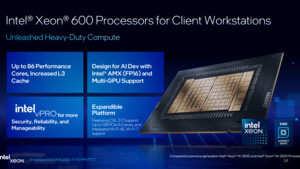Mr.Seymour Buds
Commodore
- Registriert
- Feb. 2012
- Beiträge
- 4.380
Das gefällt mir nicht.  Ich möchte immer wissen, wo ich dran bin.
Ich möchte immer wissen, wo ich dran bin.
Hab hier zB einen ATMEGA-328P-PU auf einem Arduino Uno und da ist klar, das ist ein Controller. Ich würde zB nicht auf die Idee kommen, davon Windows zu booten. Wozu auch. Der soll steuern und regeln und sonst (erstmal) nichts. Und der Energieverbrauch ist auch sehr gering. Kann lange an einer 9V Blockbatterie hängen und laufen.
Hab hier zB einen ATMEGA-328P-PU auf einem Arduino Uno und da ist klar, das ist ein Controller. Ich würde zB nicht auf die Idee kommen, davon Windows zu booten. Wozu auch. Der soll steuern und regeln und sonst (erstmal) nichts. Und der Energieverbrauch ist auch sehr gering. Kann lange an einer 9V Blockbatterie hängen und laufen.



